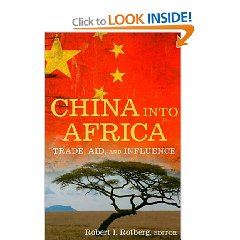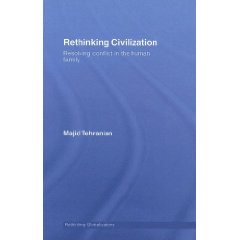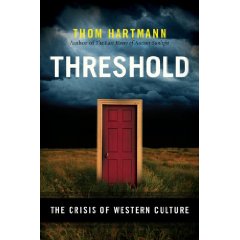
![]() Greed Pricing, Useful Content,
Greed Pricing, Useful Content,
March 8, 2010 Completed 30 August 2010
Joseph W. Dellapenna (Editor), Joyeeta Gupta (Editor)
I was forced to buy this book as part of a twelve book review for an international organization, and even though it was a business expense, this kind of greed pricing makes me urge all authors to use Print on Demand services and bypass the publishers entirely. Having read the book now, I can assure the reader that this is worthwhile ONLY as a library book on loan. As an independent publisher myself, I could publish this book for $39.95, give Amazon its 55%, and still cover my costs and then some (sell one third of the print run, the rest is profit).
Instead of this book, I recommend as a 6 Star and Beyond book, Governing Water: Contentious Transnational Politics and Global Institution Building (Global Environmental Accord: Strategies for Sustainability and Institutional Innovation). I recommend other water books below; at Phi Beta Iota the Public Intelligence Blog where all my reviews lead back to Amazon, you can also see all my reviews of water books (or books in any of 97 other non-fiction categories) with one click.
The book is very well put together, with 24 authors that together cover history, Islamic and Jewish water law, eight countries, and five regions, finishing up with the most valuable portion of the book, a discourse on trends with some excellent tables, but no visualization of note. “New Media” is going to bury publishers like this, they are ten years behind the meaningful presentation curve.
Two key points to place this book in context:
1) The law is chaotic, driven by corporate interests, and generally out of touch with reality and with science.
2) The law is unenforceable at the local level and I believe international law will soon be unenforceable at the national level.
The editorial intent is to focus on “issues of architecture, agency, adaptiveness, accountabily, access, and allocation.”
To get a grip on the reality, try these books:
The Atlas of Water, Second Edition: Mapping the World's Most Critical Resource
Water: The Fate of Our Most Precious Resource
The World's Water 2008-2009: The Biennial Report on Freshwater Resources
Blue Gold: The Fight to Stop the Corporate Theft of the World's Water
Water Wars: Privatization, Pollution, and Profit
US readers will especially appreciate:
When the Rivers Run Dry: Water–The Defining Crisis of the Twenty-first Century
Unquenchable: America's Water Crisis and What To Do About It
The Blue Death: Disease, Disaster, and the Water We Drink
Despite the excellence of the individual contributions, I give this book a three for two reasons: the greed pricing that makes the book unaffordable to the Amazon reader; and the larger lack of context–this is a book about law for lawyers, not a book about where the law is right and wrong and where it should go. Useful as a starting point, this does not help as much as the first book I recommend above, which is also reasonably priced.
The editors have done an excellent job of summarization. In discussing the changing characteristics of governance (by many) as opposed to government (by one), they draw on the collection as a whole to list seven fragmentations:
01 Geographical fragmentation (goverance must be multi-level and multi-national)
02 Functional fragmentation (“world bodies” versus public interest bodies)
03 Resource fragmentation (dispersed actors that I note need harmonization through shared information)
04 Interest fragmentation (harder to reconcile)
05 Norm fragmentation (national, corporate, and social all in conflict)
06 Policy fragmentation (still struggling to find ways to share information and reach consensus)
07 Decision-making and implementation fragmentation (Epoch A going down, Epoch B rising)
The book tends to gloss over the reality that corporate interests are funding and driving the UN and other international water bodies, but I do find their short summary of the Dublin Conference useful and list the four principles here:
01 Notion of finite and necessary nature of water
02 Need for participatory approach at all levels of management
03 Central role of women in water management [rather strangely presented by authors as also tied to the need to recognize water as an economic good–vice a human right]
04 Establishment of multi-stakeholder forums
The authors discuss a theory of change and are very weak on this point. Ted Gurr and others do it better. Revolutionary change occurs across the political-legal, socio-economic, ideo-cultural, techno-demographic, and natural-geographic domains, and these are all deeply inter-connected with one another and with the psycho-social nature of the individuals, most of whom are being radicalized and will no longer tolerate colonial-era practices maintained by corrupt elites.
The conclusion is most helpful and tables are used to good effect.
Differential factors leading to difference water laws including water geography, economic dependence, history and hydro-politics, and importance to ecosystems.
Forces leading to converging [or not] domestic water law and policy include civilization, religion, conquests, communism, international codification, environmentalism, epistemic communities, and globalization.
I don't see corruption anywhere, perhaps that is synonymous with globalization as discussed in The Global Class War: How America's Bipartisan Elite Lost Our Future – and What It Will Take to Win It Back, Confessions of an Economic Hit Man, and Breaking the Real Axis of Evil: How to Oust the World's Last Dictators by 2025.
Colonial influences interacting with tribal and religious derivations in the Middle East and Africa are dissected by this book but I cannot help feeling that this kind of effort deals with the elephant's shadow rather than the elephant itself. Never-the-less, a superb effort.
The table on page 399 on key water principles is very helpful and worthy of retension.
+ Water law principles include sovereignty, equity, and avoidance of harm.
+ Human rights principles include participation, conflict resolution, prior informed consent, and human rights generally.
+ Environmental law principles include environmental impact assessments, sustainable development, precautionary approach, polluter pays principle, decentralization, open international economic system, and notification (of accidents).
The table on page 400 addresses water principles from other sources of governance.
+ Water rights based on ownership, appropriation, and licensing
+ Sectoral approach to water; different laws relevant to water in different fields
+ Gender bias concerns: ownership and appropriation often only possible by males
+ Contextual governance
+ State regulation of contracts
The book concludes that the law needs to open up to other disciplines (see the Graphic on Web of Fragmented Knowledge); that institutions must change [or be replaced]; and that fairness must be a primordal attribute of water law.
Amazon limits me to ten links. ALL links are active at Phi Beta Iota the Public Intelligence Blog.








